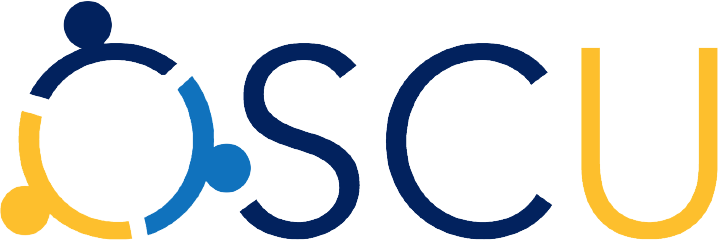OSCU Award
We are excited to announce the call for suggestions for the inaugural Open Science Community Utrecht Prize (OSCU Award)! This prize is a celebration of commitment, innovation, and originality in the field of open science. It is an opportunity to recognize those who have made significant contributions to advancing open science, whether through groundbreaking projects or by inspiring and facilitating others in the community.
What is the OSCU Award? The OSCU Award is awarded in recognition of outstanding contributions to open science and the open science community. This could be through innovative projects, exceptional engagement in open science practices, or efforts in spreading the ideas of open science. The award is of symbolic value, aimed at increasing visibility and acknowledgment within our community.
This award is from the community, for the community. It’s an opportunity to shine a light on those who are making a real difference in the world of open science. Let’s come together to celebrate our achievements and inspire further innovation and collaboration in open science.
The OSCU Award is organized in three stages.
(1) Nomination round: Every one can nominate everyone.
(2) Selection round: The OSCU core-team selects the most promising candidates.
(3) Voting round: OSCU members vote the winner out of the selection of stage 2.
For the Open Science Community Utrecht Award 2024 the following inspiring Open Science people are nominated. The invite to partipate in the voting will be send via e-mail to all OSCU member.
Ihnwhi Heo
Having graduated from Utrecht University’s Methodology and Statistics master’s program, Ihnwhi is currently a PhD candidate in Quantitative Methods, Measurement, and Statistics at the University of California, Merced. For 2.5 years, he has been dedicated to spreading open science principles at the University of California, Merced. Instructing PSY10 Analysis of Psychological Data and PSY15 Research Methods, he created a module on the open science movement to introduce the philosophy, discuss researcher degrees of freedom and questionable research practices, and provide solutions such as registered reports and the open-source JASP program. This module is the only and first one at the university to inspire undergraduates to apply open science practices in psychological research. He received positive feedback from students and will continue to spread open science.
Lennard Visser
Lennard Visser is a PhD candidate of Copernicus, Energy & Resources group. He took the effort with his promotors to provide a data set of solar photovoltaic power generation data. This data was measured in and around the city of Utrecht. He designed protocols to check and clean the data (of over 260 million data points) and provided raw and processed data. Such data is very rare in the solar research community, particularly because of the very high time resolution of 1 minute. He used this data in his own research on solar forecasting using also machine learning. The data set was made available via a paper in the Journal of Renewable and Sustainable Energy, and can be downloaded using a Zenodo link:
Paper: Lennard R. Visser, Boudewijn Elsinga, Tarek A. AlSkaif, Wilfried G.J.H.M. van Sark, Open-source quality control algorithm and multi-year power generation data of 175 PV systems, Journal of Renewable and Sustainable Energy 14 (2022) 043501 (doi:10.1063/5.0100939)
Data set: Lennard R. Visser, Boudewijn Elsinga, Tarek A. AlSkaif, Wilfried G.J.H.M. van Sark, Open-source quality control algorithm and multi-year power generation data of 175 PV systems, https://zenodo.org/record/6906504#.YuehHy8RoXo (doi:10.5281/zenodo.6906504)
Stefan Vermeent
Stefan Vermeent is a a PhD Candidate in the developmental psychology at Utrecht University and the Max Planck Institute for the Study of Crime, Security, and Law. He developed an impressive open science workflow for a Registered Report based on secondary data (https://doi.org/10.1111/desc.13478). Looking for a way to transparently document when he accessed certain parts of the data, he developed the projectlog R package (https://stefanvermeent.github.io/projectlog/). This package helps users to automatically keep track of and summarize important project milestones (including automatic detection of first-time data access). Stefan went even further by turning the project’s GitHub repository into a user-friendly website (https://stefanvermeent.github.io/abcd_ddm/), which provides extensive documentation, a reproducible manuscript, and simulated data. Stefan’s efforts not just raise the bar for open science, but also provide hands-on tools for other researchers.
Bolinda Hoeksema
Bolinda Hoeksema has advocated and promoted FAIR and responsible science principles within the Hogeschool Utrecht (HU) for many years. As head of the HU library datastewards and information specialists and integral part of the research support division, she has enabled other researchers to improve their data-handling, open access publishing and application of FAIR principles in general. In the past two years she has taken a leading role in the open science working group within the HU, striving to embed open science within the HU policy and successfully applying for funding for open science officers and an open access fund. Furthermore she has connected to nation-wide initiatives regarding open science such as the DCC applied science and has worked towards integrating FAIR principles into the workflow of universities of applied science. Working in an environment where open science is not yet commonplace, she plays a crucial role in the development of openness within the HU.

